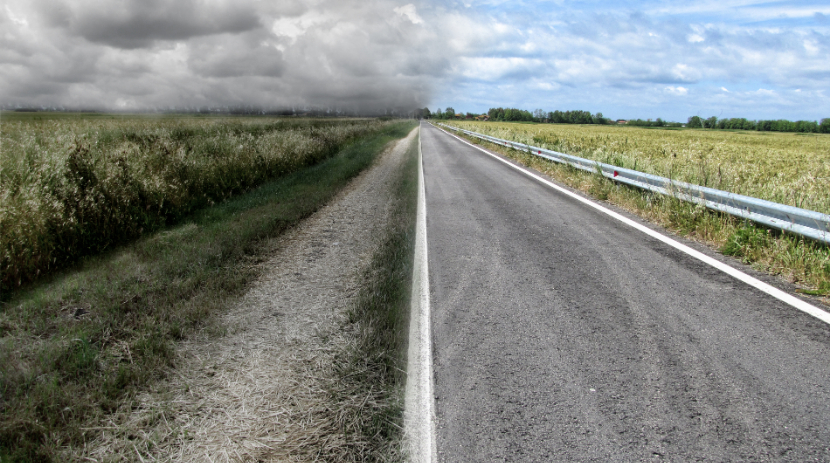From the August 2020 Issue

The Day After His Return
One of the most popular children’s books ever written is by Judith Viorst: Alexander and the Terrible, Horrible, No Good, Very Bad Day (Atheneum, 1972). Alexander is a red-headed tyke whose day starts like this on page one: “I went to sleep with gum in my mouth and now there’s gum in my hair and when I got out of bed this morning I tripped on the skateboard and by mistake I dropped my sweater in the sink while the water was running and I could tell it was going to be a terrible, horrible, no good, very bad day.” And it’s all downhill from there.
There’s a day like that coming in the future. Only it’s going to be much, much worse. In fact, it will be the saddest day in human history. And there will be no do-overs on that day. Once it happens, history will move at a prophetic pace to the conclusion of God’s plan for the world.
But there is great irony attached to this coming day: Not only will it be the saddest day in history, it will be the happiest day as well. This single day in the future will divide the whole human race into two camps: saved and unsaved.
So you see why the same day will hold differing emotions for the forgiven and the forlorn. Those who participate in the Rapture will rejoice as they see their Savior face to face for the first time. But those who are left behind will know only devastation. The word “regret” captures something important about that day. Alexander, the little guy whose day got off to a bad start, was not having a “regretful” day. His day was “bad” because of a chain of events that were frustrating and irritating. But it wasn’t a regretful day.
To feel regretful is to know you didn’t do something you should have done. And even worse is the realization that it’s too late to make things right. For us as Christians, it is a reminder that we need to be about our Father’s business sharing the Good News of the Gospel while there is still time. The people left behind on the day of the Rapture will be rejected because they failed to give heed to the words of Scripture that for two thousand years have foretold the coming of that day.
I will follow Jesus’ lead and make no predictions about when end-time events will be set in motion by the Rapture (Matthew 24:36). But following Jesus’ lead again, I will say confidently that the day is coming (Matthew 24:1-35). What we do between today and that day will determine our actions on the day after He returns.
To feel regretful is to know you didn’t do something you should have done. And even worse is the realization that it’s too late to make things right.
The Day Itself
The best biblical description of the day, the Rapture, is found in 1 Thessalonians 4:13-18. But don’t search your Bible concordance for “the Rapture”—you won’t find it. The English word “rapture” is taken from the word used in the Latin translation of the Bible (the Vulgate) which is used to translate the Greek word in 1 Thessalonians 4:17 for “caught up together.” Still with me? In time, “the Rapture” was used to describe the catching up of believers into the air to meet the returning Christ described by Paul in this passage.
Paul wrote these words to comfort the believers in Thessalonica (verse 18). They had been taught that Christ was going to return to earth for His Church, but they also knew that some of their Christian friends and relatives had died and would not be alive when Christ returned. What would happen to them? They wanted to know.
So Paul explained that Jesus is going to return for all true believers and all, the deceased and the living, will participate: “And the dead in Christ will rise first. Then we who are alive and remain shall be caught up together with them in the clouds to meet the Lord in the air. And thus we shall always be with the Lord” (verses 16b-17).
It’s the day after that day that you do not want to be found on planet earth. For, as the Holy Spirit is withdrawn from earth with the Church (2 Thessalonians 2:7), evil will gain the upper hand on earth through the Antichrist—the man of sin (2 Thessalonians 2:3). For seven years, it will be hell on earth. The only thing of which there will be more than rebellion on earth during those days is regret. Many will rue the day they failed to acknowledge Christ as Savior and Lord.
Preparing for the Day
If you have planned a dinner party in your home three weeks away, you don’t set the date, mail the invitations, and then do nothing. For the next three weeks the event will be uppermost in your mind: planning the food, cleaning house, deciding on flowers and decorations, planning the evening. In fact, it’s fair to say that we can judge the degree to which a person anticipates an event by the amount of preparation he or she engages in: Preparation is the proof of anticipation.
And that applies to the day when Christ returns for His Church as well. Because the day is unknown, and will therefore be unexpected, we must live in a state of preparedness. We should live holy and godly lives (2 Peter 3:11) as we eagerly wait and watch for that day (1 Corinthians 1:7), praying (1 Thessalonians 5:17) and persevering until it arrives (Revelation 3:11-12). Perhaps most of all, we should be prayerfully concerned for those who are not ready for that day.
Will you be rejoicing on the day Jesus appears for His Church? You can be certain today by committing your heart to Him as Lord and Savior!
More Articles
This Month's Magazine Resource

What God Promises You
Using Scripture and powerful, real-life stories, Dr. Jeremiah helps you not just understand these promises but also claim them as your own.
Subscribe Now
Each month, read articles and devotionals from Dr. David Jeremiah that will encourage, challenge, and strengthen your walk with the Lord.














 Turning Point for God is a tax-exempt, not-for-profit, religious corporation as defined under Section 501(c)(3) of the Internal Revenue Code. Your donation gift(s) are very much appreciated and may qualify as a charitable deduction for federal income tax purposes.
Turning Point for God is a tax-exempt, not-for-profit, religious corporation as defined under Section 501(c)(3) of the Internal Revenue Code. Your donation gift(s) are very much appreciated and may qualify as a charitable deduction for federal income tax purposes.




